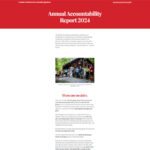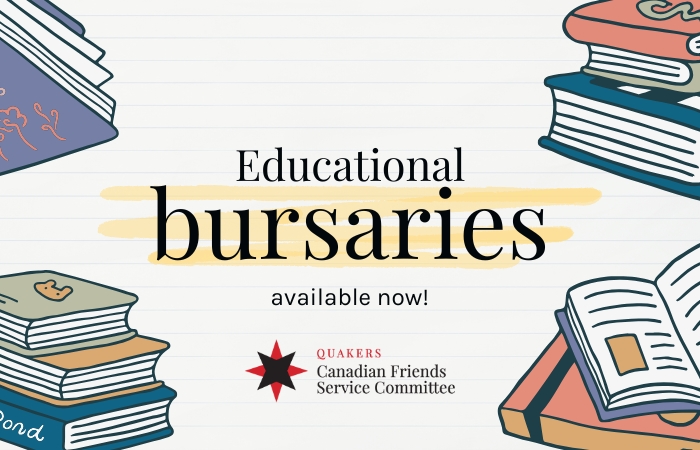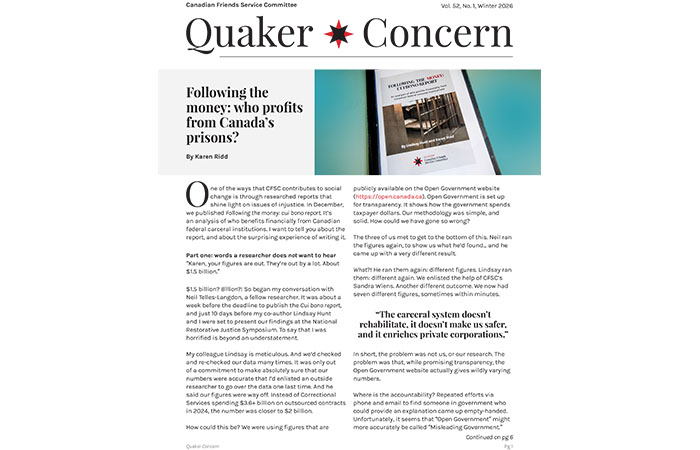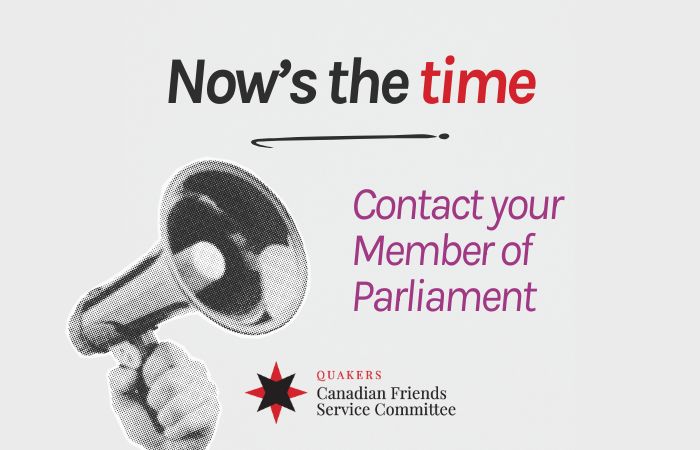
2024 Annual Accountability Report
October 31, 2024
Ten Quaker groups leave Twitter/X
December 16, 2024![]() We’ve probably all been there: you so badly want to see someone act differently that you become harsh and negative and lose any balanced perspective. How could you have a healthier disagreement or conflict?
We’ve probably all been there: you so badly want to see someone act differently that you become harsh and negative and lose any balanced perspective. How could you have a healthier disagreement or conflict?
Whether it’s a problem with a romantic partner, family member, or a bigger political issue, successful conflicts often involve two types of responses. These can be summarized as oppose and propose. This means both opposing problems and proposing meaningful solutions.
What do you feel?
If you’re just opposing regularly, but there’s nothing realistic that you have to propose, you may benefit from exploring your emotions. This could be done alone or with a trusted friend or therapist. Emotions are powerful, and can be surprising.
I’ll give you an example of what I mean. I recently facilitated a workshop where we did a brief kindness meditation together, which has been studied by the positive psychologist Barbara Fredrickson and colleagues and found to potentially provide benefits including decreased symptoms of illness and an increased sense of purpose in life.
This was the fifth workshop the group had done together, so it was clear that members had a lot in common in terms of their beliefs and values. Yet people had wildly different emotional reactions to the kindness meditation.
Some immediately felt flooded with love and empathy. Others recoiled and felt strong negative emotions. Still others felt specific sensations and emotions located in particular parts of their bodies. A question like “Who did the exercise right?” wouldn’t be useful. Everyone felt what was right for them that time doing the exercise.
What if we just listened to each other’s emotions—not to pity them, or try to rush through them or change them?
Hearing emotion being expressed can definitely be uncomfortable. But emotions don’t go away just because we try to suppress them, and research shows that feeling heard is essential in conflicts. So acknowledging emotions seems like a challenge worth accepting.
There’s another big trap we can fall into—a battle over who deserves to feel what.
When opposing, don’t oppose feelings, oppose problems.
Whether you think your own or someone else’s emotions are justified or not doesn’t matter. If the emotions are there, there they are!
Peoples’ life circumstances certainly aren’t all equal. But life circumstances and emotions aren’t always closely related.
You can verify this for yourself. Sometimes you experience different emotional responses to similar stressors, such as being stuck in traffic. And you almost certainly have met someone who’s had an objectively difficult life who still seems to experience and express many positive emotions, like joy and enthusiasm.
I’ll never forget an extended conversation I had with a young Honduran man who was in the midst of a months-long journey to the US to try to find work opportunities. The man had literally nothing—no changes of clothes, no bag, and no money. He was also—amazingly to me, given his deeply challenging life circumstances—joyful and very quick to laugh.
The takeaway here is to be careful assuming how someone feels just because you know a bit about their life. There’s always more to their story than you know. It can be helpful to get curious and ask respectful questions if you want to know how a person feels.
Any time a conversation turns into a battle about whose emotion is “right,” or who should get more attention or care, try reframing the situation.
Each of us has causes of stress and emotional pain. Each of us can benefit from being heard. It makes us more collaborative and open to other’s needs and perspectives. Hearing someone express their emotions or beliefs doesn’t mean you have to agree with them. But you also don’t have to tell them that they shouldn’t feel what they feel.
You could accept peoples’ emotions as real to them and your emotions as real to you. This framing removes the need to say who deserves to feel what they’re feeling. The feelings are simply there and having an impact on each of you.
In addition to improving conflicts, giving emotions space to be there might offer another benefit. Evidence suggests that accepting emotions—even negative ones—can actually lead to experiencing fewer negative emotions and better psychological health.
Of course there are also many ways (exercise, breath work, meditation, all sorts of different therapies, etc.) for you to work with your own difficult emotions.
Accepting the presence of emotions doesn’t mean fuelling them or taking them so seriously as to think they’ll last forever or that they for sure say something important or honest. They may, they may not. Either way, for effective conflicts it helps when emotions are simply noticed and named.
When that is done, emotions themselves are no longer a cause of conflict. Actions are the real issue. If you’re trying to manipulate someone or push their buttons to invoke a desired emotion (or if they’re doing that to you), those actions are a problem!

Two hands: Oppose and propose. Source: Pexels/Monstera Production and Philip Justin Mamelic
Two hands: Oppose and propose
The activist Barbara Deming, who was particularly influenced by Gandhi, came up with an image of two hands of active nonviolence.
The oppose hand is a stop sign—naming harms and injustices and seeking to prevent them. For your relationships, you can think of this as noticing when there’s something you just can’t accommodate or accept. It’s an action the other person took that you sense you need to speak up about.
The propose hand is an open upturned palm of offering. It’s never enough to just be against something (it’s even less useful to be against someone). If you want to continue to have a relationship of some type, you need to discuss and come up with a proposal together of what you both can do. A proposal needs to be realistic, meeting peoples’ needs and avoiding humiliating anyone.
Both types of action are needed for healthy conflicts: oppose (don’t stay silent when there’s a serious problem) and propose (don’t just tear down; offer something positive that you’d like to see instead).
This post originally appeared on Psychology Today. You can learn much more about conflicts from our free weekly tips for better conflicts.




